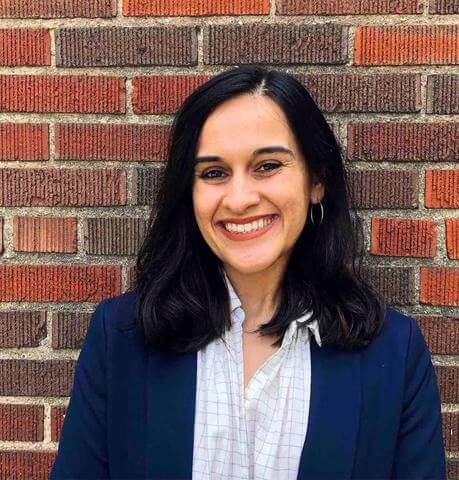Howard University Anatomy Researcher Named to Prestigious Science and Technology Policy Fellowship

WASHINGTON — Eve K. Boyle, Ph.D., a postdoctoral research fellow in the Howard University College of Medicine’s Department of Anatomy, has been awarded a Science & Technology Policy Fellowship from the American Association for the Advancement of Science (AAAS).
During her time at Howard University, Boyle worked with Dr. Rui Diogo, assistant professor in the Howard University College of Medicine, and served as project manager of Diogo’s National Science Foundation-funded science outreach initiative, The Visible Ape Project.
"I've discovered over the past few years that I enjoy applying my scientific training to addressing systemic issues of access and equity within the research and education communities,” Boyle says. “I look forward to solving problems and helping to bring change to academic programs in DC and beyond as an STPF fellow."
Boyle is among 284 highly trained scientists and engineers in the 2020-21 class who will spend a year serving professionally in federal agencies and congressional offices as a Science & Technology Policy Fellow. The U.S. government benefits from the contributions of scientists and engineers while they learn first-hand about federal policymaking and implementation.
Boyle will serve her fellowship at the NSF working with Kellina Craig-Henderson, Ph.D., who served as a professor in Howard University’s Department of Psychology before joining NSF. At NSF, Boyle will contribute to projects that improve science communication and broaden participation of underrepresented groups in the social, behavioral, and economic sciences.
For nearly half a century, the fellowship program has been in place as part of the AAAS mission to advance science and serve society. The program aims to support evidence-based policymaking by leveraging the knowledge and analytical mindset of science and engineering experts, and foster leaders for a strong U.S. science and technology enterprise. Fellows represent a full spectrum disciplines, backgrounds and career stages. Visit www.aaas.org/stpf to learn more about the AAAS Science & Technology Policy Fellowships.
“Particularly in this age of COVID-19, we are proud and grateful to usher in the 48th class of Science & Technology Policy Fellows in September,” said STPF Director Jennifer Pearl.“The present state of the world demands a strong link between science and policy.”
Since the program’s inception in 1973, more than 3,400 fellows have supported the executive, judicial and legislative branches of the U.S. government. After the fellowship, many fellows remain in the policy arena working at the federal, state, regional or international level. Others pursue careers in academia, industry or the nonprofit sector, leveraging their fellowship experiences to enhance their contributions and broaden their reach.
Visit www.aaas.org/stpf to learn more about the AAAS Science & Technology Policy Fellowships.
About Howard University
Founded in 1867, Howard University is a private, research university that is comprised of 13 schools and colleges. Students pursue studies in more than 120 areas leading to undergraduate, graduate and professional degrees. The University operates with a commitment to Excellence in Truth and Service and has produced one Schwarzman Scholar, three Marshall Scholars, four Rhodes Scholars, 11 Truman Scholars, 25 Pickering Fellows and more than 165 Fulbright recipients. Howard also produces more on-campus African-American Ph.D. recipients than any other university in the United States. For more information on Howard University, visit www.howard.edu.
American Association for the Advancement of Science (AAAS)
The American Association for the Advancement of Science (AAAS) is the world’s largest general scientific society and publisher of the journal Science, as well as Science Translational Medicine; Science Signaling; a digital, open-access journal, Science Advances; Science Immunology; and Science Robotics. AAAS was founded in 1848 and includes more than 250 affiliated societies and academies of science, serving 10 million individuals. Science has the largest paid circulation of any peer-reviewed general science journal in the world. The nonprofit AAAS is open to all and fulfills its mission to “advance science and serve society” through initiatives in science policy, international programs, science education, public engagement, and more. For additional information about AAAS, see www.aaas.org.
Media Contact: Sholnn Freeman, sholnn.freeman@howard.edu
